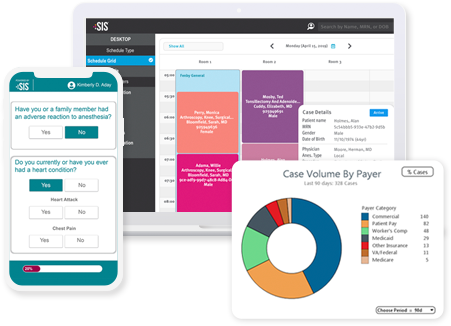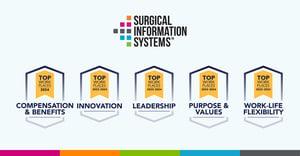Q&A With Joan Dentler of Avanza Healthcare Strategies
 Joan Dentler is president and CEO of Avanza Healthcare Strategies, which provides healthcare organizations with strategic guidance, with a focus on outpatient services and population health management. Ms. Dentler is presenting at the ASC Association’s 2016 annual meeting, taking place May 19-22 in Dallas. Her session on "ASC Joint Ventures: The Rules for Success" is scheduled for Saturday, May 21, from 4:30-5:30.
Joan Dentler is president and CEO of Avanza Healthcare Strategies, which provides healthcare organizations with strategic guidance, with a focus on outpatient services and population health management. Ms. Dentler is presenting at the ASC Association’s 2016 annual meeting, taking place May 19-22 in Dallas. Her session on "ASC Joint Ventures: The Rules for Success" is scheduled for Saturday, May 21, from 4:30-5:30.
Q: While there are many different ways for joint venture partnerships between ASCs and hospitals to succeed and fail, what do you think is the key to a successful partnership?
Joan Dentler: Candor and transparency from all parties are the keys to a successful partnership. It is important that everyone be very honest about what they want out of the partnership (high returns, control, etc.) so that decisions can be made taking based on the needs and objectives of all partners.
Q: What are some of the steps ASCs need to take to keep a partnership strong while ensuring the ASC's best interests remain a priority?
JD: Direct communication and candor are so important. If any of the partners ever feel that someone is not keeping the interests of the ASC in mind when making decisions, they need to speak up. Failing to do so will benefit no one, and likely hurt the ASC and damage the joint venture partnership.
This is why ASC partnerships must be developed with great care. Serious thought should be given to the different parties' interests, motivation and commitment before the signing of any partnership agreements. It is absolutely critical for all the parties to align their interests during the development phase. This will create a stronger, longer-lasting partnership and minimize potential problems down the road.
Q: When an ASC and hospital are forming a joint venture, technology is usually a topic of discussion. What advice would you give ASCs on how to approach any recommendations given by a hospital partner relating to technology changes?
JD: We often see hospitals trying to push "hospital-based" technology onto the ASCs in which they have an ownership stake. The reasons given are typically that the hospital needs certain reports or combined financials from the ASC, and feels the best way to obtain those is through using the existing hospital IT applications.
This can be problematic for many reasons. Cost is perhaps the most obvious. Hospitals typically spend seven figures on their IT systems, followed by equally large IT budgets for ongoing support, maintenance, upgrades, etc. An ASC cannot support, nor does it need to support, that level of IT investment.
But cost is not the only reason a hospital-based IT system is not the best choice for an ASC. Since ASCs typically follow a set routine and schedule, and have short cases and patient stays, the information often requested in a hospital-based IT system is overkill for an ASC. Asking ASC staff to navigate through unnecessary forms and data fields can significantly impact efficiency and productivity.
Q: As ASCs are getting closer to having their own EHR certification standards, more surgery centers are investing in EHRs. As an ASC industry veteran and someone who has worked with many different types of surgery centers throughout the country, what have you seen as the value of an ASC implementing an EHR?
JD: Efficient and effective data collection! So many ASCs lack reliable patient/case data, and this hampers successful decision making. My hope is that the shift to EHRs as well as real-time and required data collection will benefit ASC management's ability to identify issues quickly and improve processes.


















